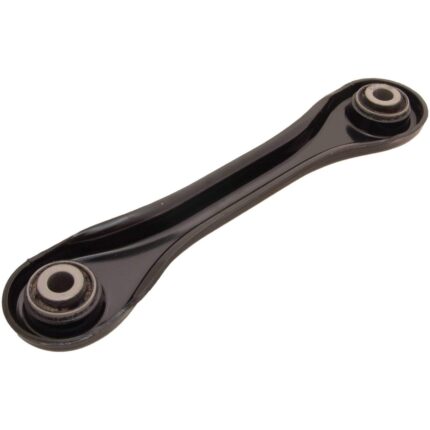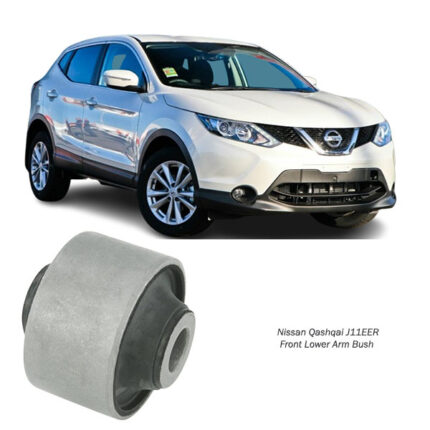-13%
Get Daihatsu/Rush Arm Bushing Differential Mount in Kenya
The differential mount bushing is a critical component in a vehicle’s drivetrain, specifically in vehicles equipped with a rear-wheel-drive (RWD) or all-wheel-drive (AWD) system. It serves several important functions related to the mounting and stabilization of the differential, which is a crucial component responsible for transferring power from the engine to the wheels. Here’s an in-depth look at its functions, signs of wear, and maintenance considerations:
Functions of Differential Mount Bushing
- Differential Stabilization
Primary Function: Securely mount the differential assembly to the vehicle’s chassis or subframe.
Details:
- Vibration Dampening: Like other bushings, the differential mount bushing absorbs and dampens vibrations generated by the differential and drivetrain components.
- Noise Reduction: Helps minimize noise transmission from the differential to the vehicle’s cabin, contributing to a quieter ride.
- Alignment and Positioning
Primary Function: Maintain proper alignment and positioning of the differential assembly.
Details:
- Alignment Stability: Ensures that the differential remains properly aligned with respect to the driveshaft and axles.
- Prevents Excessive Movement: Controls the movement of the differential under load, preventing excessive shifting or tilting.
- Load Distribution
Primary Function: Distribute the forces and stresses encountered during acceleration, deceleration, and cornering.
Details:
- Load Bearing: Helps distribute the torque and forces generated by the engine and transmission to the rear wheels.
- Enhanced Durability: Reduces stress on the differential housing and mounting points, promoting longevity and reliability.
- Enhanced Handling and Stability
Primary Function: Contribute to vehicle stability and handling dynamics.
Details:
- Improved Traction: Stable mounting of the differential ensures consistent power delivery to the wheels, improving traction and stability, especially in challenging driving conditions.
- Steering Response: Enhances steering response by maintaining consistent rear axle alignment and geometry.
Signs of Worn or Failing Differential Mount Bushing
- Increased Noise and Vibration
Description: Excessive noise or vibration from the rear of the vehicle, particularly during acceleration or deceleration.
Details:
- Vibration Transmission: Worn bushings may allow more vibration and noise from the differential to transfer into the vehicle’s cabin.
- Rough Operation: A noticeable increase in drivetrain noise or vibration can indicate bushing wear.
- Handling Issues
Description: Changes in vehicle handling dynamics, such as increased body roll or instability during cornering.
Details:
- Alignment Problems: Worn bushings can affect the alignment and positioning of the differential, leading to handling issues.
- Reduced Stability: The vehicle may feel less planted or secure on the road, especially during turns or maneuvers.
- Visible Wear or Damage
Description: Visual inspection reveals cracked, torn, or deteriorated bushing material.
Details:
- Rubber Deterioration: Rubber bushings may degrade over time due to exposure to heat, oil, and road debris.
- Metal Components: Bushing brackets or mounting points may show signs of corrosion or fatigue.
- Fluid Leaks
Description: Presence of differential fluid leaks around the differential mount bushing area.
Details:
- Seal Damage: Bushing wear can compromise seals or gaskets, leading to fluid leaks from the differential assembly.
- Hydraulic System: Leaks can affect differential operation and may lead to lubrication issues.
Maintenance and Replacement
- Regular Inspection: Periodically inspect the differential mount bushing for signs of wear, damage, or deterioration.
- Fluid Checks: Monitor differential fluid levels and inspect for leaks around the differential assembly.
- Replacement: Replace worn or damaged differential mount bushings promptly to restore drivetrain performance and prevent further damage to other components.
- Professional Service: Consider having a qualified mechanic perform the replacement, as it may require specialized tools and knowledge.
- Alignment Check: After replacing bushings, ensure proper alignment and drivetrain operation to maintain vehicle stability and handling.
Follow us on Facebook for more parts.





